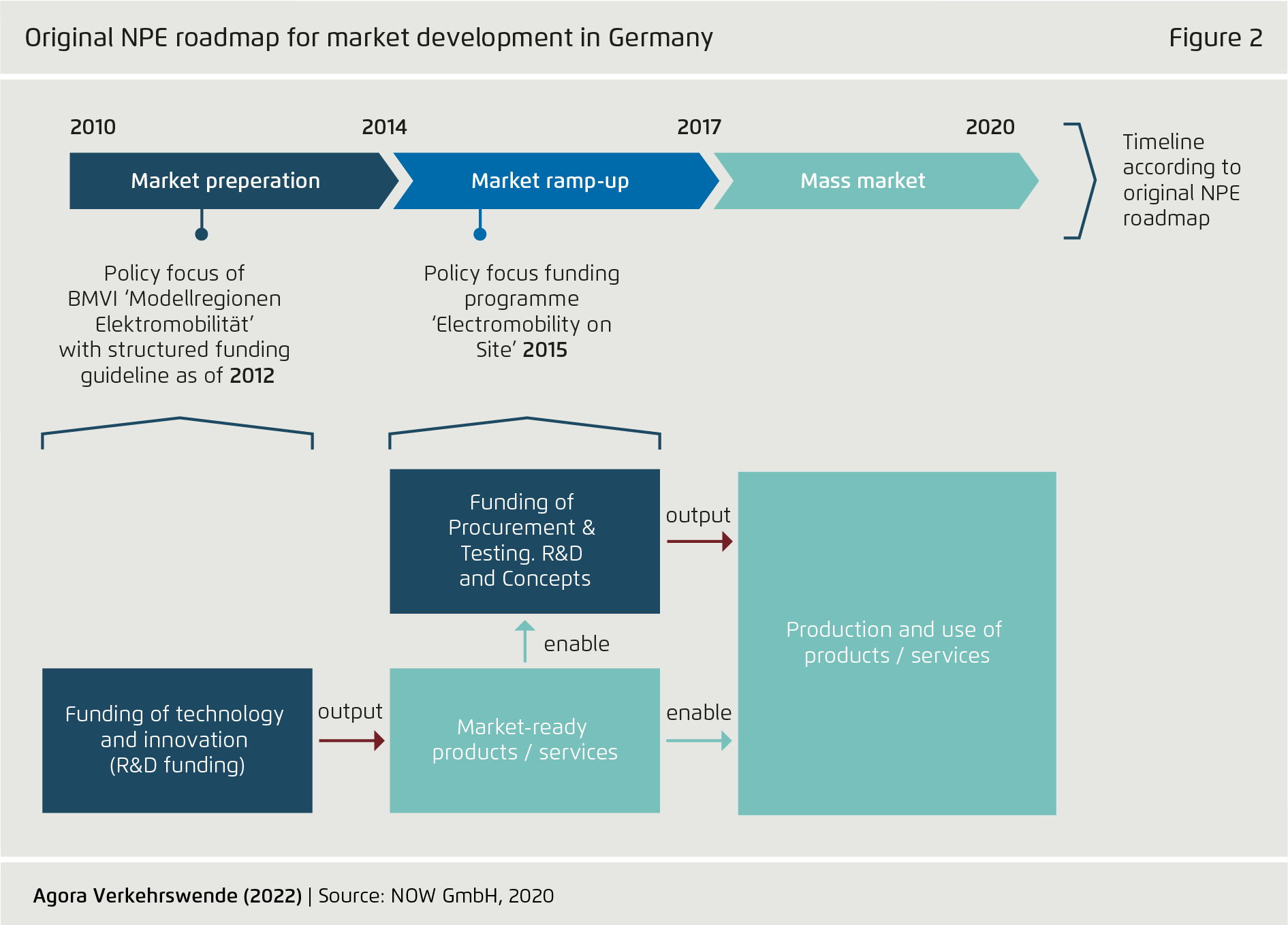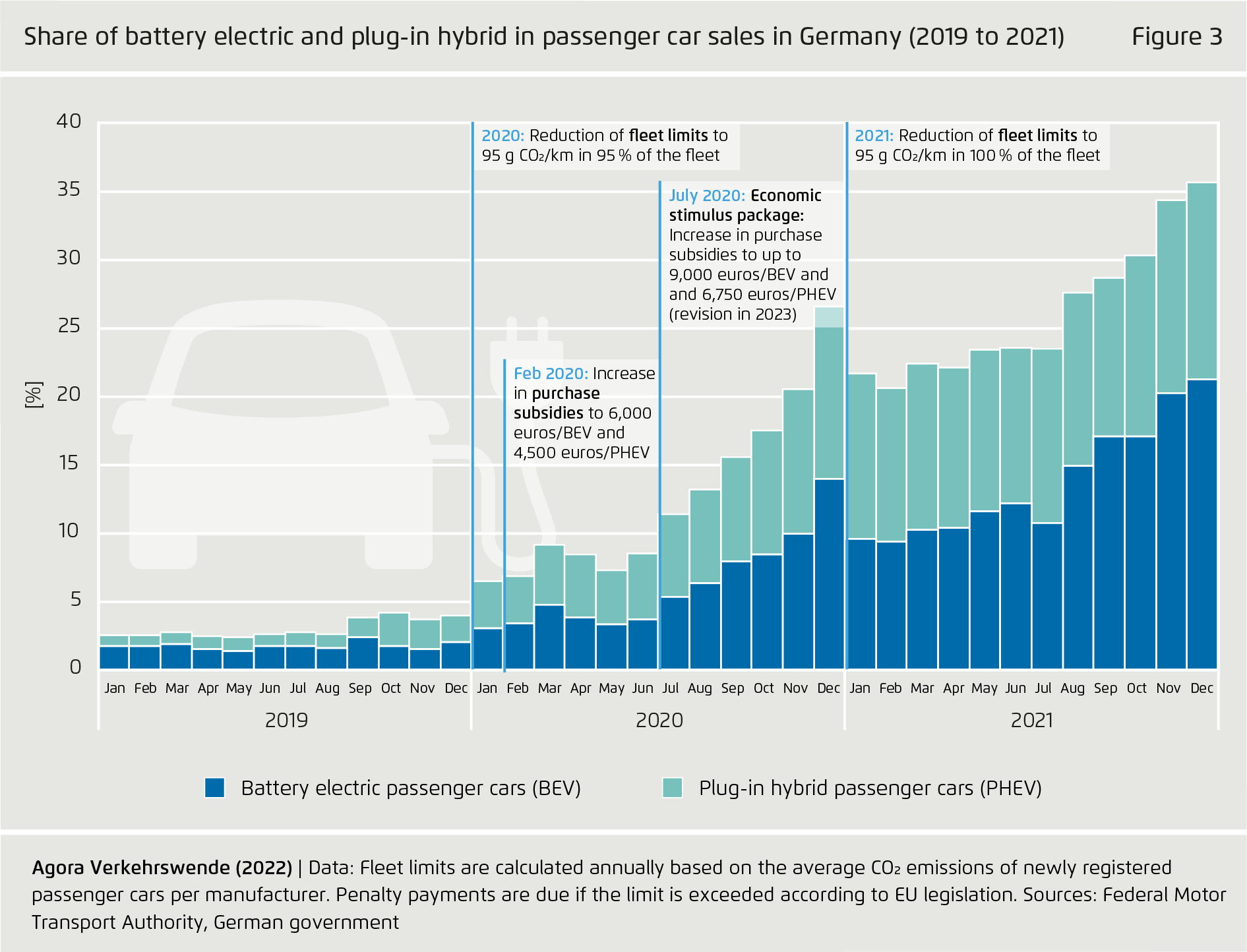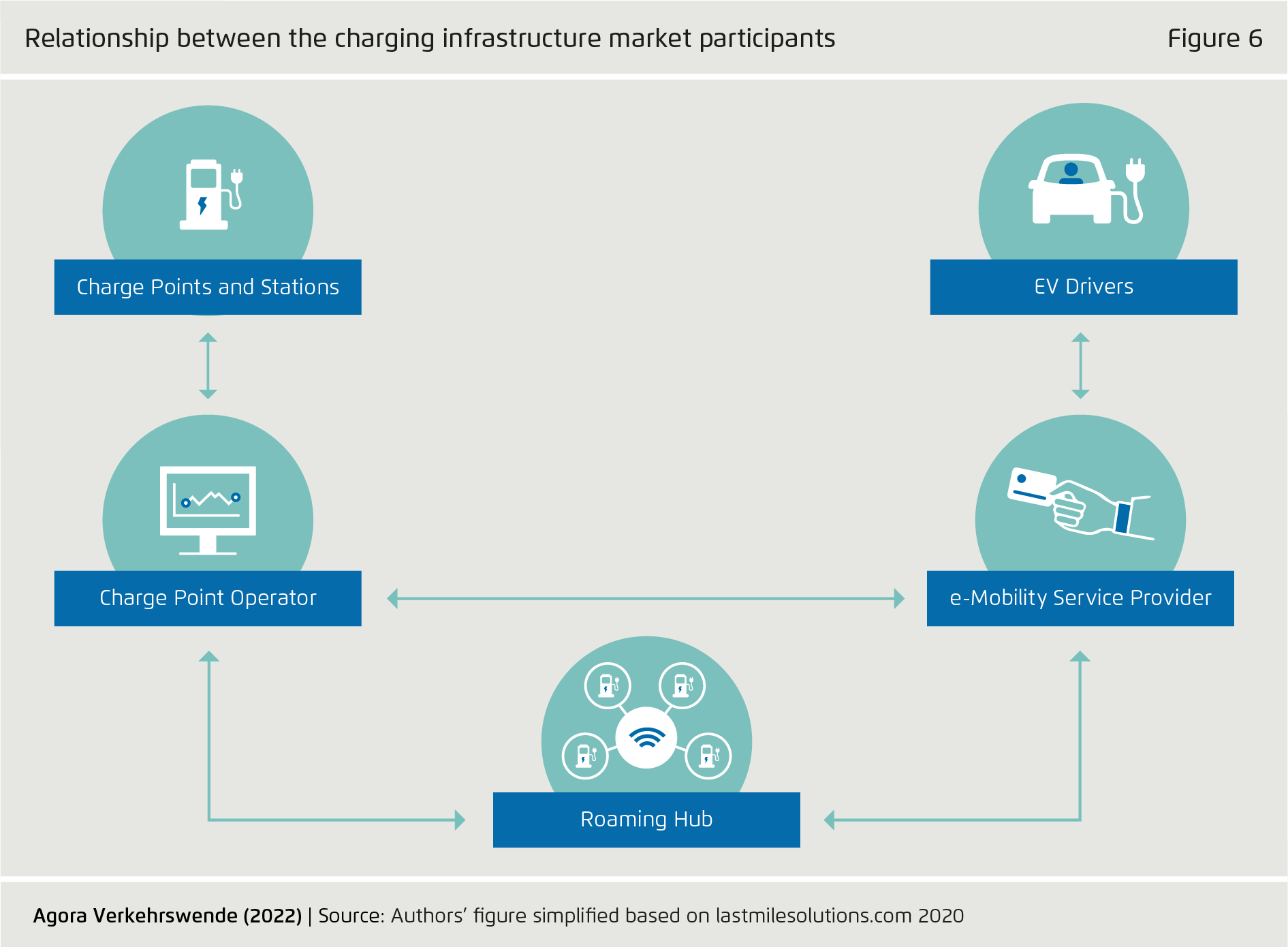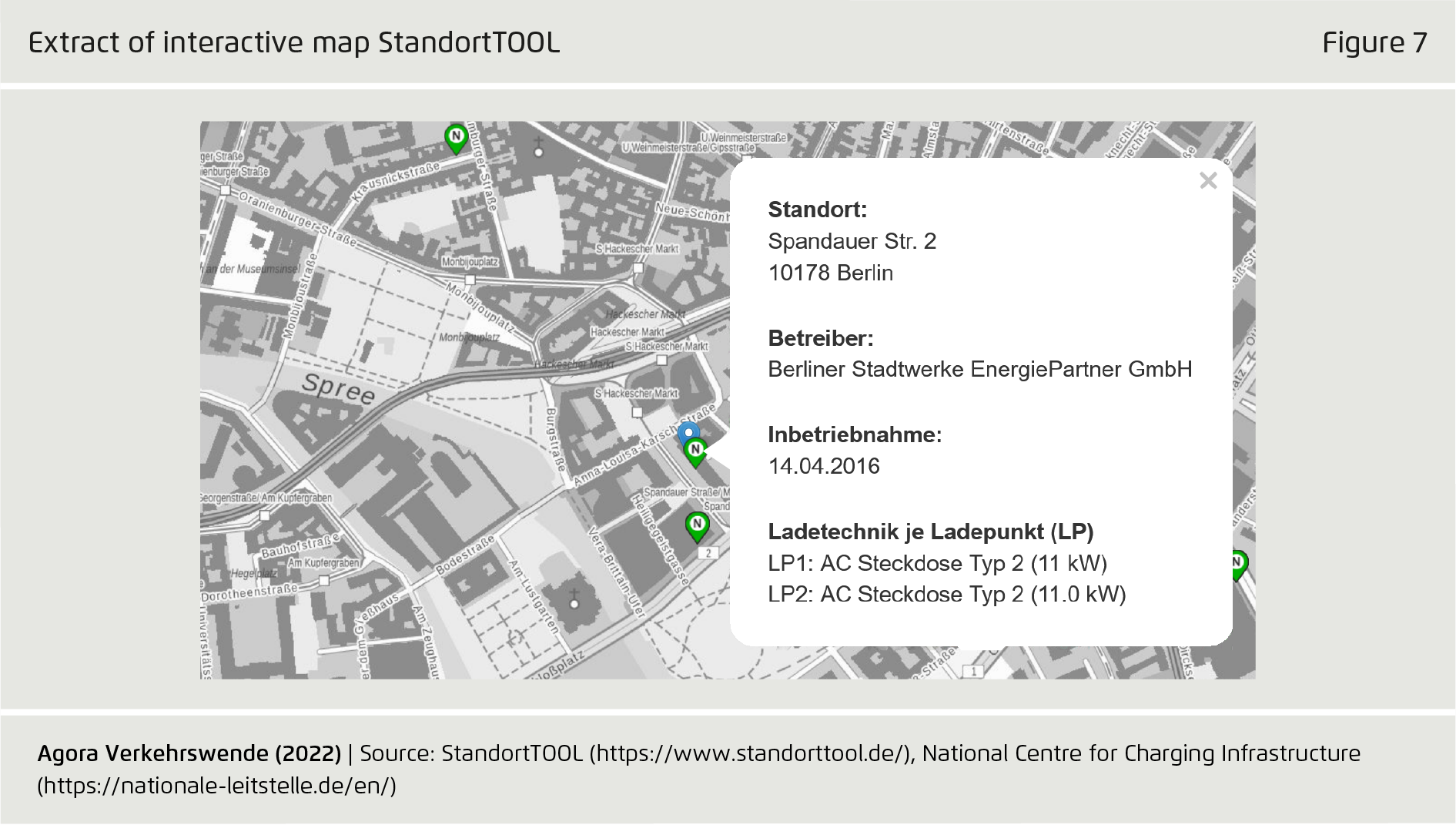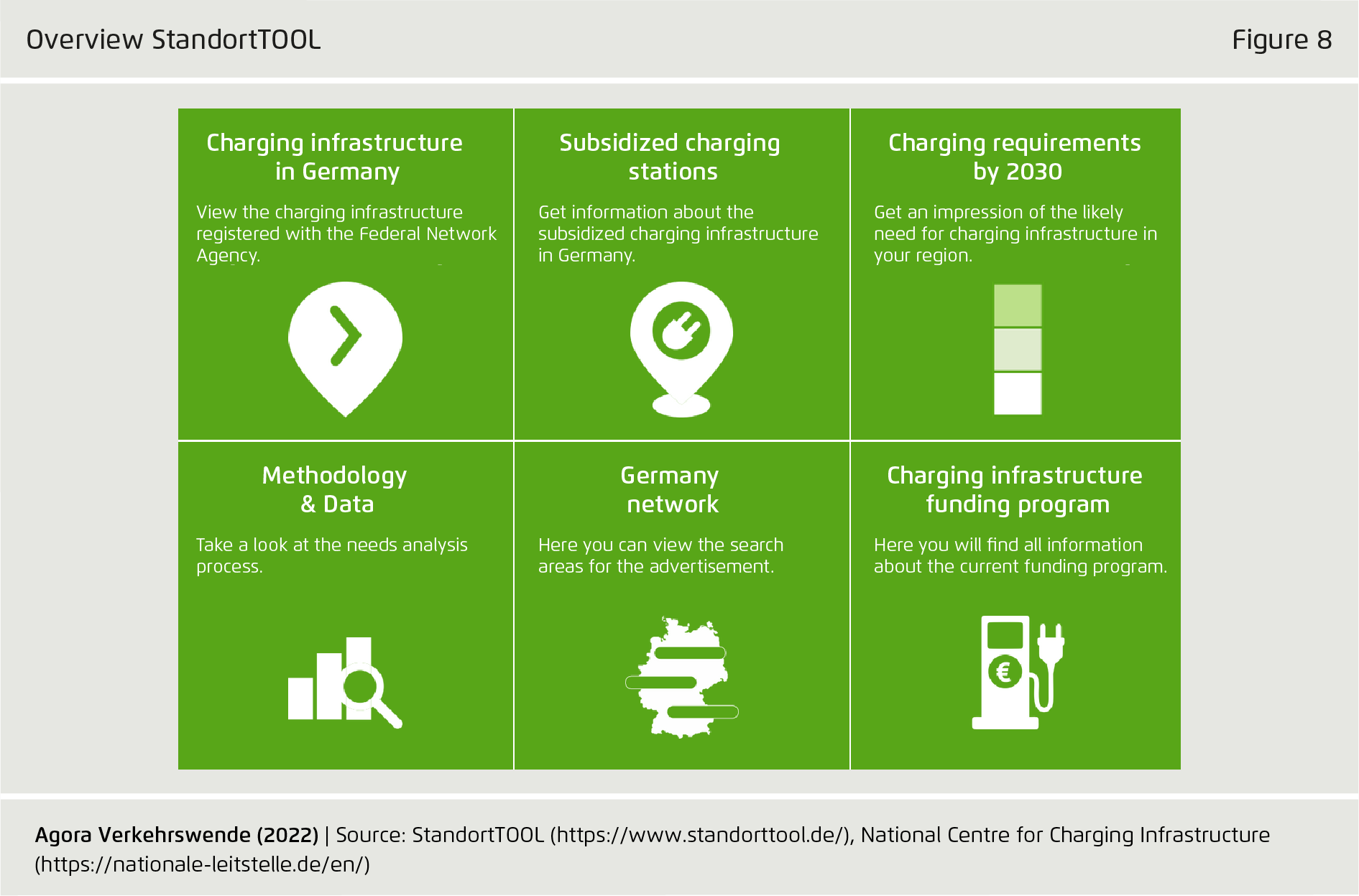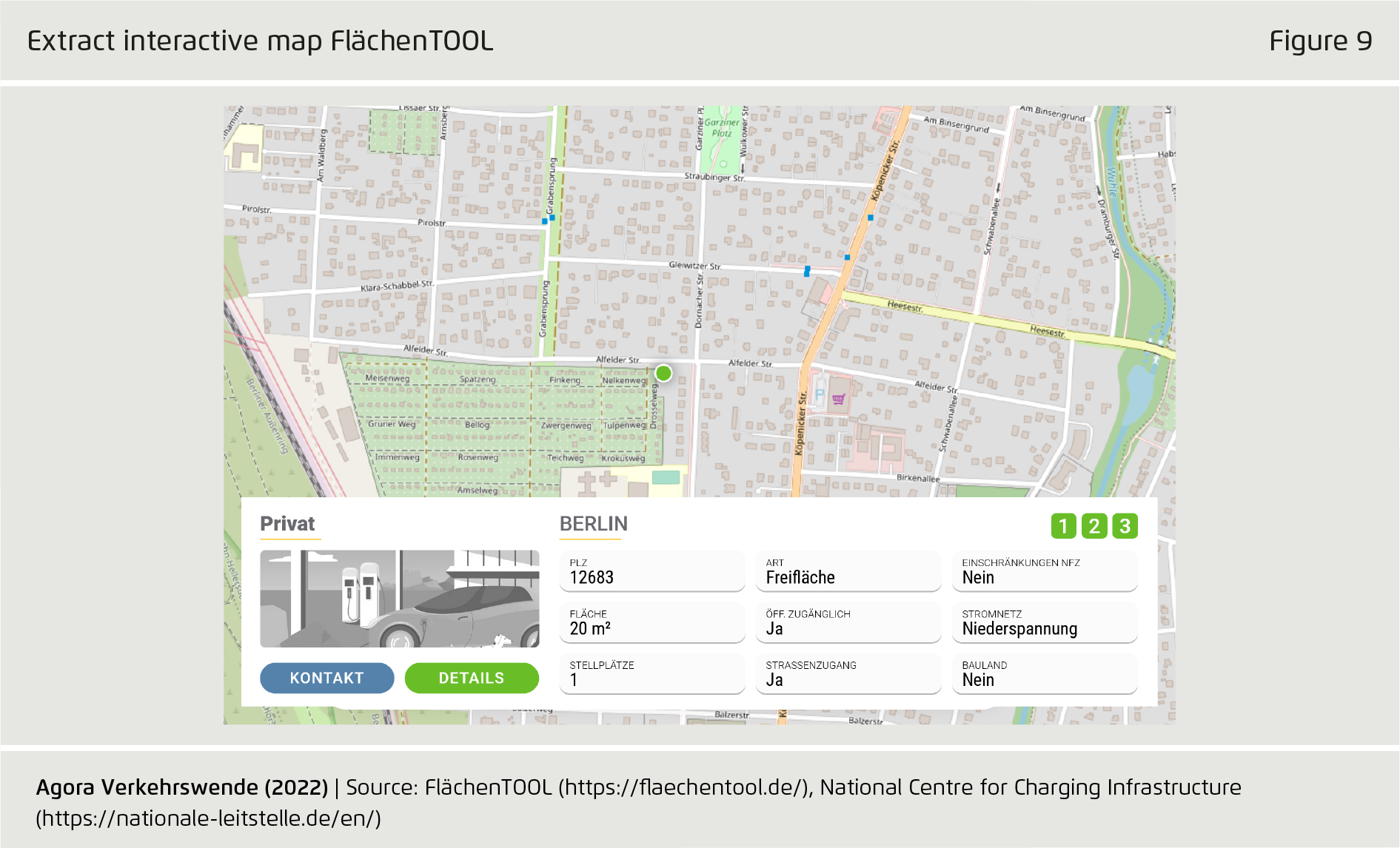-
Policymakers can work towards providing more data to enable the development of the Indian public charging industry.
A reliable and open data regime can be a significant enabler of India’s public charging industry. The availability of quality data in Germany has helped the industry to expand its network as well as informing the research community and the general public. But India currently lacks similar public data repositories, and its businesses and start-ups must make do with limited captive user data, which is certain to result in suboptimal public charging services. To enable data-driven decision-making in the industry, Indian policy-makers can choose to also create a legislative framework that will lead to an open registry of public charging points as well as work to integrate a variety of data sources and make them available to industry players and the general public.
-
A national charging infrastructure masterplan, complemented by enabling policies, would be helpful in planning the infrastructure requirements accordingly.
A collaborative inter-ministerial group, similar to ISLa in Germany, can own this masterplan and define the role of policy interventions vis-a-vis the public charging market to avoid early market challenges such as suboptimal utilization, incompatible technologies, and lack of interoperability. This would improve the attractiveness of Indian public charging sector to private investors and support the national transport decarbonization targets.
-
Private players can build sustainable business models by specializing and picking their niche.
Due to the high upfront investments and traffic risks involved in the public charging business, businesses need to monitor usage patterns and customer behaviour proactively. The German experience so far demonstrates that faster and bigger charging stations are expensive to build but offer better returns on investment. By contrast, slow chargers are less expensive but need much higher utilisation levels to break even. In general, Indian companies seeking to establish a niche in the charging market will need to avail themselves of at least one of four competitive levers: convenience, price, loyalty, and quality. Businesses will have to tailor their strategies carefully since servicing all the use cases will not be economically feasible.
-
Indian charging industry can benefit by disaggregating the value chain.
Specialised entities catering to specific links in the charging value chain can build a strong foundation for India’s public charging ecosystem. Unlike the current system in India, in which end-to-end integration predominates, a disaggregated value chain, as is the case in Germany, lowers business risk for individual players and results in mutually beneficial innovation thanks to synergistic effects. Because India’s public charging market is still in its nascent stage, it offers opportunities for innovative business models, particularly so for charge point operators and e-mobility service providers.
This content is also available in: German
Charging ahead
A comparative analysis of charging infrastructure development in Germany and India
Preface
This report examines how the Indian charging infrastructure ecosystem could benefit from lessons learned from a more advanced EV market such as Germany. It highlights the importance of a data-driven approach to facilitate investment decisions and to ramp up the nascent EV charging industry in India. The availability and quality of data in Germany can be understood as a positive benchmark in this regard.
The report was written by Vanchhit Johri, a German Chancellor Fellow. The fellowship, which is funded by the Alexander von Humboldt Foundation, enabled the Fellow to research on the questions described above.
In future, Agora Verkehrswende plans to intensify the research into transport decarbonization and electrification in India and establish an ongoing dialogue between Indian and German stakeholders and experts under the auspices of the NDC Transport Initiative Asia, a project financed through the International Climate Initiative and conducted by a consortium of seven leading research and international cooperation institutes: the Deutsche Gesellschaft für Internationale Zusammenarbeit (GIZ), Agora Verkehrswende, SLOCAT, WRI, ICCT, ITF and REN21.
Key findings
Bibliographical data
Downloads
-
pdf 1 MB
Charging ahead
A comparative analysis of charging infrastructure development in Germany and
All figures in this publication
Charging power of publicly accessible charging points in Germany
From Charging ahead on page 1
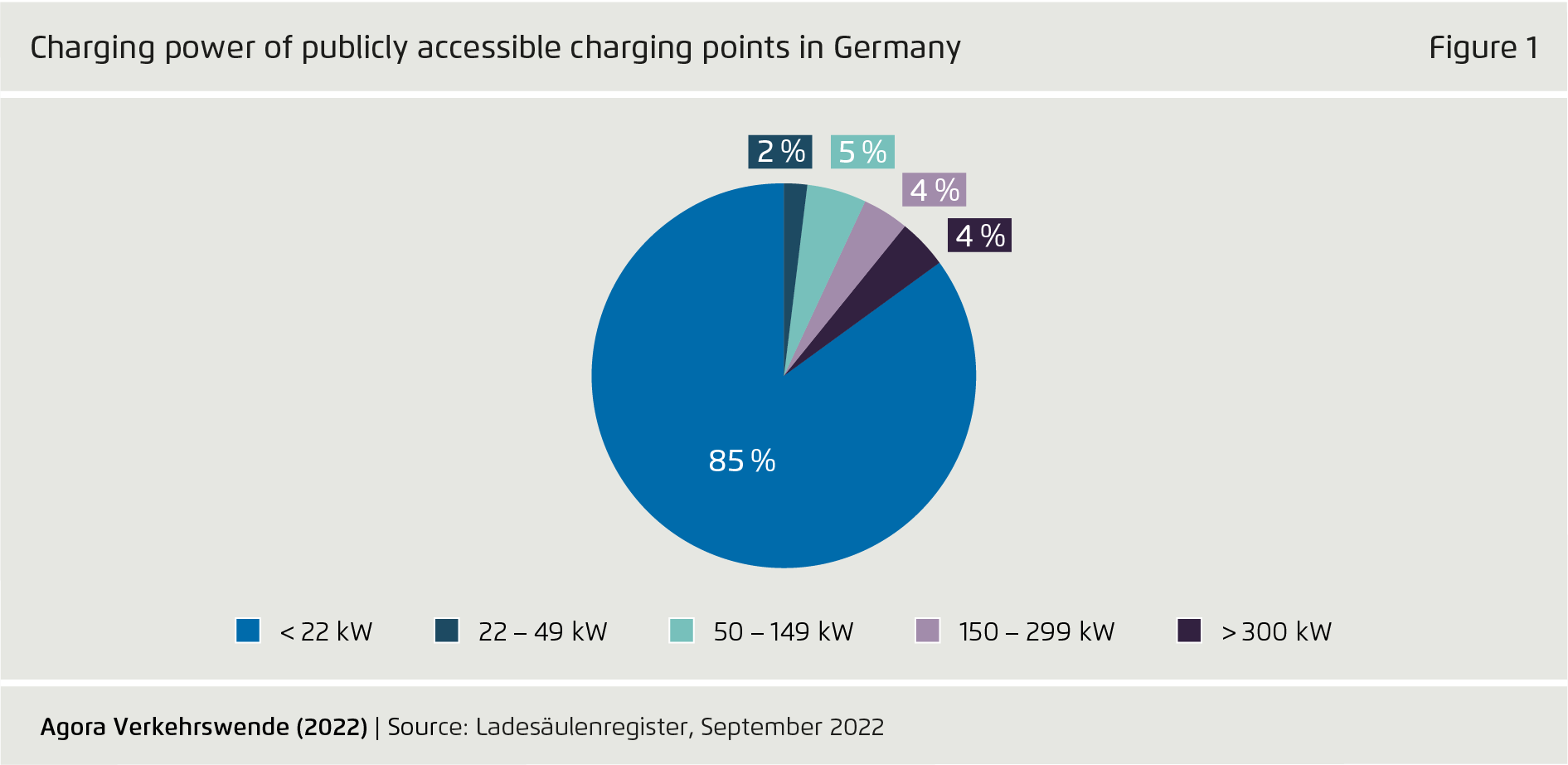
Original NPE roadmap for market development in Germany
From Charging ahead on page 2
